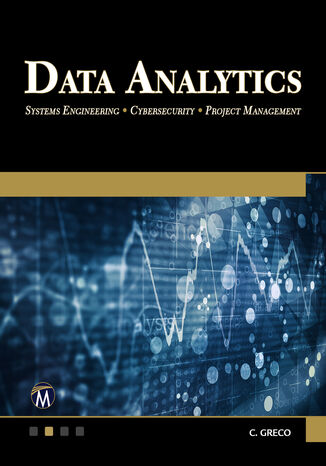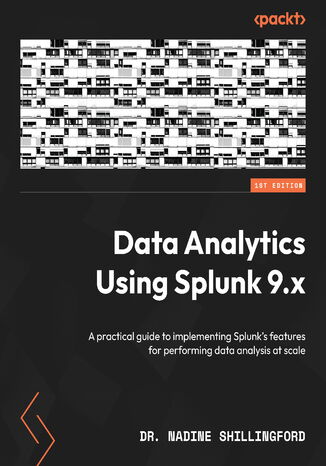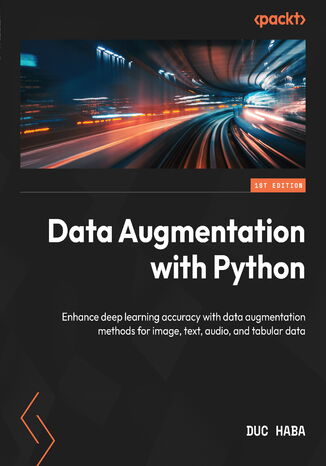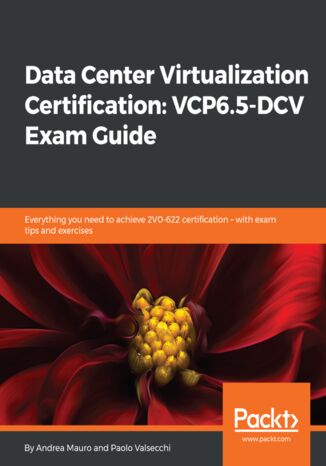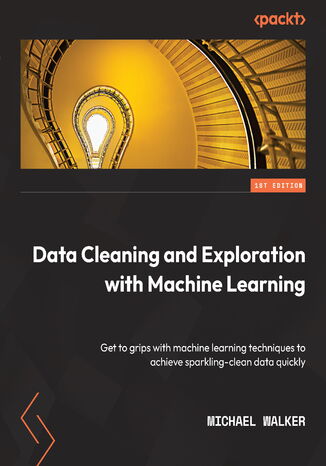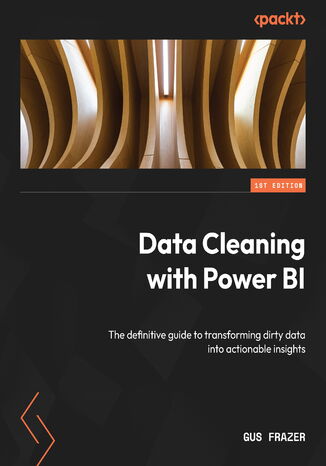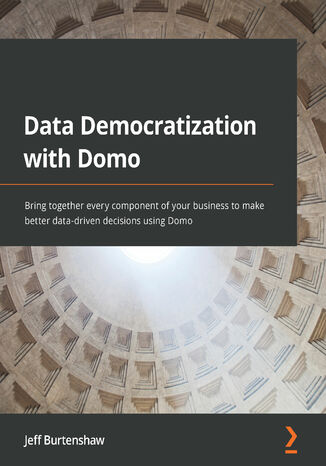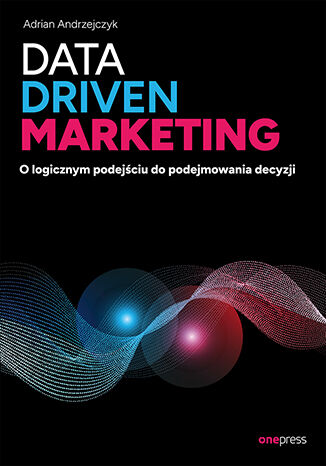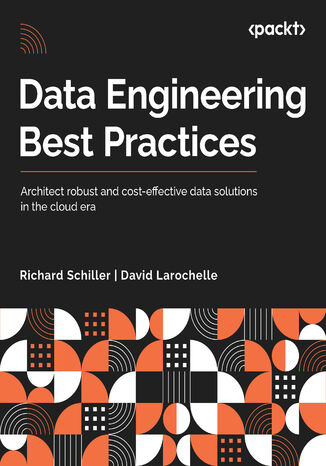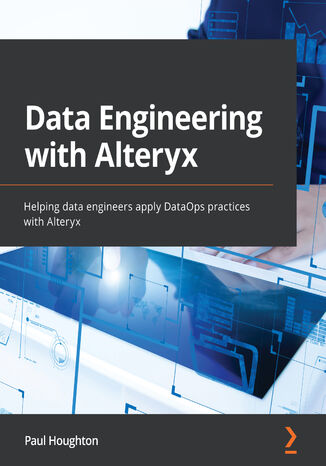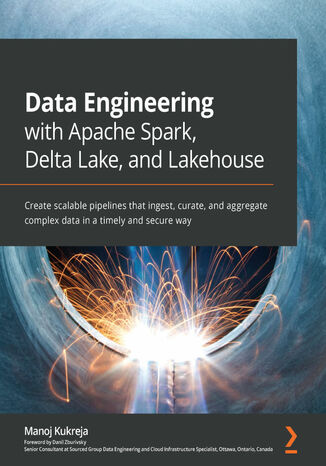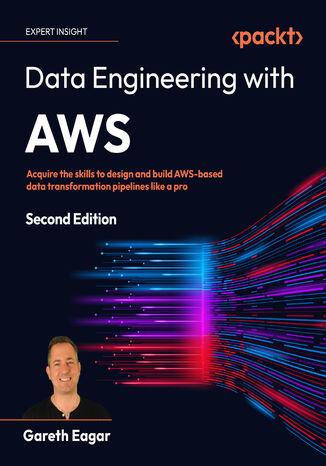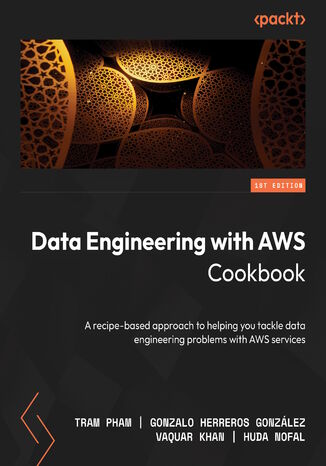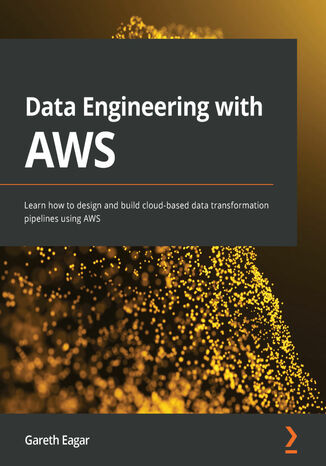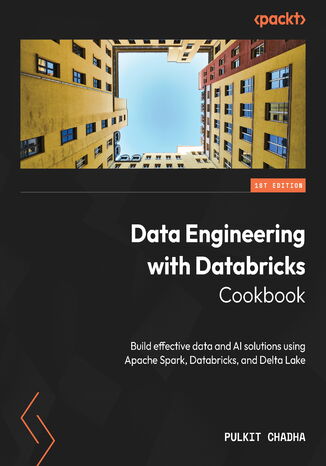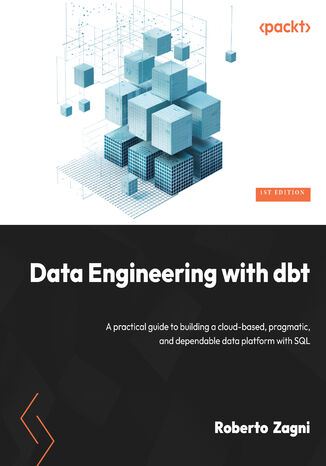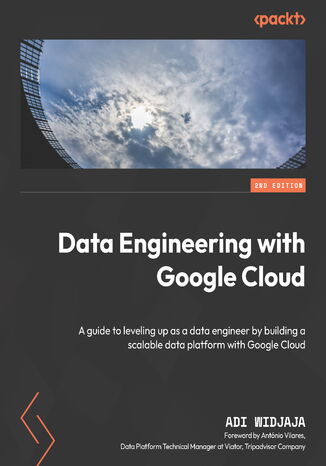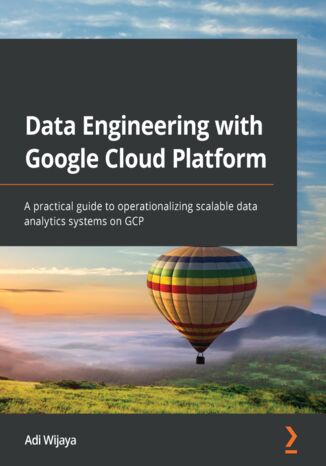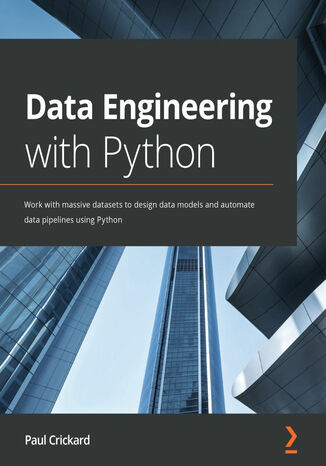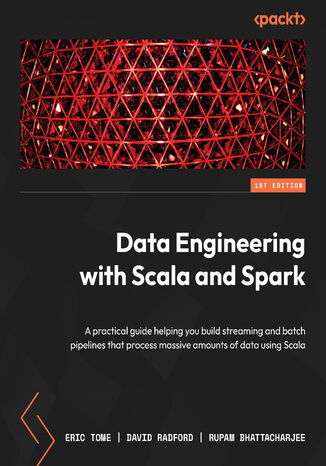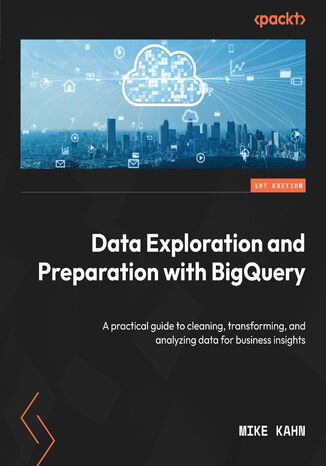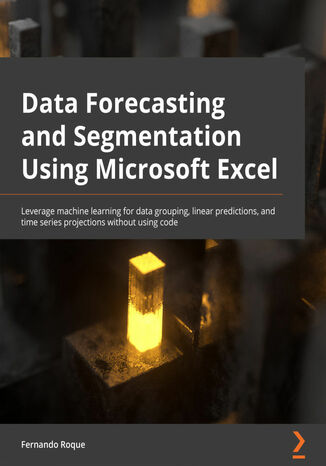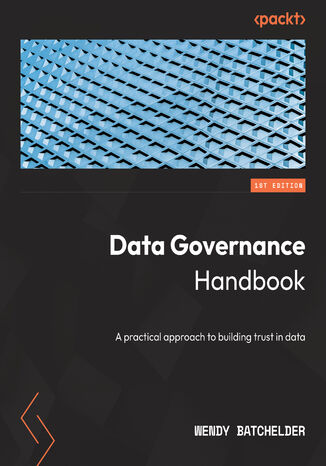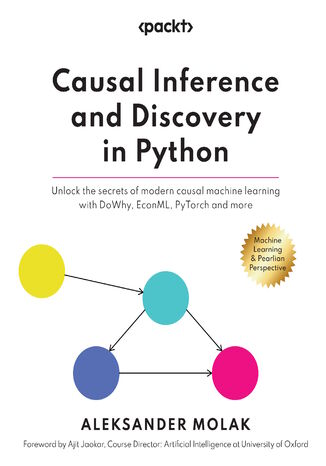Kategorien
E-Books
-
Wirtschaft
- Bitcoin
- Geschäftsfrau
- Coaching
- Controlling
- E-Business
- Ökonomie
- Finanzen
- Börse und Investitionen
- Persönliche Kompetenzen
- Computer im Büro
- Kommunikation und Verhandlungen
- Kleines Unternehmen
- Marketing
- Motivation
- Multimedia-Training
- Immobilien
- Überzeugung und NLP
- Steuern
- Sozialpolitik
- Handbȕcher
- Präsentationen
- Führung
- Public Relation
- Berichte, Analysen
- Geheimnis
- Social Media
- Verkauf
- Start-up
- Ihre Karriere
- Management
- Projektmanagement
- Personal (HR)
-
Für Kinder
-
Für Jugendliche
-
Bildung
-
Enzyklopädien, Wörterbücher
-
E-Presse
- Architektura i wnętrza
- Sicherheit und Gesundheit am Arbeitsplatz
- Biznes i Ekonomia
- Haus und Garten
- E-Business
- Ekonomia i finanse
- Esoterik
- Finanzen
- Persönliche Finanzen
- Unternehmen
- Fotografie
- Informatik
- HR und Gehaltsabrechnung
- Frauen
- Computer, Excel
- Buchhaltung
- Kultur und Literatur
- Wissenschaftlich und akademisch
- Umweltschutz
- meinungsbildend
- Bildung
- Steuern
- Reisen
- Psychologie
- Religion
- Landwirtschaft
- Buch- und Pressemarkt
- Transport und Spedition
- Gesundheit und Schönheit
-
Geschichte
-
Informatik
- Office-Programme
- Datenbank
- Bioinformatik
- IT Branche
- CAD/CAM
- Digital Lifestyle
- DTP
- Elektronik
- Digitale Fotografie
- Computergrafik
- Spiele
- Hacking
- Hardware
- IT w ekonomii
- Wissenschaftliche Pakete
- Schulbücher
- Computergrundlagen
- Programmierung
- Mobile-Programmierung
- Internet-Server
- Computernetzwerke
- Start-up
- Betriebssysteme
- Künstliche Inteligenz
- Technik für Kinder
- Webmaster
-
Andere
-
Fremdsprachen lernen
-
Kultur und Kunst
-
Lektüre
-
Literatur
- Anthologien
- Ballade
- Biografien und Autobiografien
- Für Erwachsene
- Drama
- Tagebücher, Memoiren, Briefe
- Epos
- Essay
- Science Fiction
- Felietonys
- Fiktion
- Humor, Satire
- Andere
- Klassisch
- Krimi
- Sachbücher
- Belletristik
- Mity i legendy
- Nobelpreisträger
- Kurzgeschichten
- Gesellschaftlich
- Okultyzm i magia
- Erzählung
- Erinnerungen
- Reisen
- Gedicht
- Poesie
- Politik
- Populärwissenschaftlich
- Roman
- Historischer Roman
- Prosa
- Abenteuer
- Journalismus
- Reportage
- Romans i literatura obyczajowa
- Sensation
- Thriller, Horror
- Interviews und Erinnerungen
-
Naturwissenschaften
-
Sozialwissenschaften
-
Schulbücher
-
Populärwissenschaft und akademisch
- Archäologie
- Bibliotekoznawstwo
- Filmwissenschaft
- Philologie
- Polnische Philologie
- Philosophie
- Finanse i bankowość
- Erdkunde
- Wirtschaft
- Handel. Weltwirtschaft
- Geschichte und Archäologie
- Kunst- und Architekturgeschichte
- Kulturwissenschaft
- Linguistik
- Literaturwissenschaft
- Logistik
- Mathematik
- Medizin
- Geisteswissenschaften
- Pädagogik
- Lehrmittel
- Populärwissenschaftlich
- Andere
- Psychologie
- Soziologie
- Theatrologie
- Teologie
- Theorien und Wirtschaftswissenschaften
- Transport i spedycja
- Sportunterricht
- Zarządzanie i marketing
-
Handbȕcher
-
Spielanleitungen
-
Professioneller und fachkundige Leitfaden
-
Jura
- Sicherheit und Gesundheit am Arbeitsplatz
- Geschichte
- Verkehrsregeln. Führerschein
- Rechtswissenschaften
- Gesundheitswesen
- Allgemeines. Wissenskompendium
- akademische Bücher
- Andere
- Bau- und Wohnungsrecht
- Zivilrecht
- Finanzrecht
- Wirtschaftsrecht
- Wirtschafts- und Handelsrecht
- Strafrecht
- Strafrecht. Kriminelle Taten. Kriminologie
- Internationales Recht
- Internationales und ausländisches Recht
- Gesundheitsschutzgesetz
- Bildungsrecht
- Steuerrecht
- Arbeits- und Sozialversicherungsrecht
- Öffentliches, Verfassungs- und Verwaltungsrecht
- Familien- und Vormundschaftsrecht
- Agrarrecht
- Sozialrecht, Arbeitsrecht
- EU-Recht
- Industrie
- Agrar- und Umweltschutz
- Wörterbücher und Enzyklopädien
- Öffentliche Auftragsvergabe
- Management
-
Führer und Reisen
- Afrika
- Alben
- Südamerika
- Mittel- und Nordamerika
- Australien, Neuseeland, Ozeanien
- Österreich
- Asien
- Balkan
- Naher Osten
- Bulgarien
- China
- Kroatien
- Tschechische Republik
- Dänemark
- Ägypten
- Estland
- Europa
- Frankreich
- Berge
- Griechenland
- Spanien
- Niederlande
- Island
- Litauen
- Lettland
- Mapy, Plany miast, Atlasy
- Miniführer
- Deutschland
- Norwegen
- Aktive Reisen
- Polen
- Portugal
- Andere
- Przewodniki po hotelach i restauracjach
- Russland
- Rumänien
- Slowakei
- Slowenien
- Schweiz
- Schweden
- Welt
- Türkei
- Ukraine
- Ungarn
- Großbritannien
- Italien
-
Psychologie
- Lebensphilosophien
- Kompetencje psychospołeczne
- zwischenmenschliche Kommunikation
- Mindfulness
- Allgemeines
- Überzeugung und NLP
- Akademische Psychologie
- Psychologie von Seele und Geist
- Arbeitspsychologie
- Relacje i związki
- Elternschafts- und Kinderpsychologie
- Problemlösung
- Intellektuelle Entwicklung
- Geheimnis
- Sexualität
- Verführung
- Aussehen ind Image
- Lebensphilosophien
-
Religion
-
Sport, Fitness, Diäten
-
Technik und Mechanik
Hörbücher
-
Wirtschaft
- Bitcoin
- Geschäftsfrau
- Coaching
- Controlling
- E-Business
- Ökonomie
- Finanzen
- Börse und Investitionen
- Persönliche Kompetenzen
- Kommunikation und Verhandlungen
- Kleines Unternehmen
- Marketing
- Motivation
- Immobilien
- Überzeugung und NLP
- Steuern
- Sozialpolitik
- Handbȕcher
- Präsentationen
- Führung
- Public Relation
- Geheimnis
- Social Media
- Verkauf
- Start-up
- Ihre Karriere
- Management
- Projektmanagement
- Personal (HR)
-
Für Kinder
-
Für Jugendliche
-
Bildung
-
Enzyklopädien, Wörterbücher
-
E-Presse
-
Geschichte
-
Informatik
-
Andere
-
Fremdsprachen lernen
-
Kultur und Kunst
-
Lektüre
-
Literatur
- Anthologien
- Ballade
- Biografien und Autobiografien
- Für Erwachsene
- Drama
- Tagebücher, Memoiren, Briefe
- Epos
- Essay
- Science Fiction
- Felietonys
- Fiktion
- Humor, Satire
- Andere
- Klassisch
- Krimi
- Sachbücher
- Belletristik
- Mity i legendy
- Nobelpreisträger
- Kurzgeschichten
- Gesellschaftlich
- Okultyzm i magia
- Erzählung
- Erinnerungen
- Reisen
- Poesie
- Politik
- Populärwissenschaftlich
- Roman
- Historischer Roman
- Prosa
- Abenteuer
- Journalismus
- Reportage
- Romans i literatura obyczajowa
- Sensation
- Thriller, Horror
- Interviews und Erinnerungen
-
Naturwissenschaften
-
Sozialwissenschaften
-
Populärwissenschaft und akademisch
- Archäologie
- Philosophie
- Wirtschaft
- Handel. Weltwirtschaft
- Geschichte und Archäologie
- Kunst- und Architekturgeschichte
- Kulturwissenschaft
- Literaturwissenschaft
- Mathematik
- Medizin
- Geisteswissenschaften
- Pädagogik
- Lehrmittel
- Populärwissenschaftlich
- Andere
- Psychologie
- Soziologie
- Teologie
- Zarządzanie i marketing
-
Handbȕcher
-
Professioneller und fachkundige Leitfaden
-
Jura
-
Führer und Reisen
-
Psychologie
- Lebensphilosophien
- zwischenmenschliche Kommunikation
- Mindfulness
- Allgemeines
- Überzeugung und NLP
- Akademische Psychologie
- Psychologie von Seele und Geist
- Arbeitspsychologie
- Relacje i związki
- Elternschafts- und Kinderpsychologie
- Problemlösung
- Intellektuelle Entwicklung
- Geheimnis
- Sexualität
- Verführung
- Aussehen ind Image
- Lebensphilosophien
-
Religion
-
Sport, Fitness, Diäten
-
Technik und Mechanik
Videokurse
-
Datenbank
-
Big Data
-
Biznes, ekonomia i marketing
-
Cybersicherheit
-
Data Science
-
DevOps
-
Für Kinder
-
Elektronik
-
Grafik / Video / CAX
-
Spiele
-
Microsoft Office
-
Entwicklungstools
-
Programmierung
-
Persönliche Entwicklung
-
Computernetzwerke
-
Betriebssysteme
-
Softwaretest
-
Mobile Geräte
-
UX/UI
-
Web development
-
Management
Podcasts
Data Analytics. Master the Art of Data Analytics with Essential Tools and Techniques
Mercury Learning and Information, Christopher Greco
Data analytics is becoming increasingly important in our daily lives. This book offers a comprehensive view of data analytics skills, starting with a primer on statistics and progressing to the application of these methods. The text includes various formulas and algorithms used in data analytics, which can be applied in any software to achieve desired results. Through numerous demonstrations, it provides clear instruction on how to incorporate data analytics into critical thinking.The book covers a range of methods and techniques, supplemented with case studies specific to project managers, systems engineers, and cybersecurity professionals. Each profession can practice data analytics relevant to their fields. The main objective is to refresh statistical knowledge necessary for building data analytics models and to foster analytical thinking essential across these professions.From introducing statistics and data to reviewing central tendency measures and probability, the book moves to more complex topics like effect size, analysis methods, and data presentation. By the end of the course, readers will be well-versed in data analytics, ready to apply these skills effectively in their respective fields, enhancing decision-making and analytical thinking.
Splunk 9 improves on the existing Splunk tool to include important features such as federated search, observability, performance improvements, and dashboarding. This book helps you to make the best use of the impressive and new features to prepare a Splunk installation that can be employed in the data analysis process.Starting with an introduction to the different Splunk components, such as indexers, search heads, and forwarders, this Splunk book takes you through the step-by-step installation and configuration instructions for basic Splunk components using Amazon Web Services (AWS) instances. You’ll import the BOTS v1 dataset into a search head and begin exploring data using the Splunk Search Processing Language (SPL), covering various types of Splunk commands, lookups, and macros. After that, you’ll create tables, charts, and dashboards using Splunk’s new Dashboard Studio, and then advance to work with clustering, container management, data models, federated search, bucket merging, and more.By the end of the book, you’ll not only have learned everything about the latest features of Splunk 9 but also have a solid understanding of the performance tuning techniques in the latest version.
Data is paramount in AI projects, especially for deep learning and generative AI, as forecasting accuracy relies on input datasets being robust. Acquiring additional data through traditional methods can be challenging, expensive, and impractical, and data augmentation offers an economical option to extend the dataset.The book teaches you over 20 geometric, photometric, and random erasing augmentation methods using seven real-world datasets for image classification and segmentation. You’ll also review eight image augmentation open source libraries, write object-oriented programming (OOP) wrapper functions in Python Notebooks, view color image augmentation effects, analyze safe levels and biases, as well as explore fun facts and take on fun challenges. As you advance, you’ll discover over 20 character and word techniques for text augmentation using two real-world datasets and excerpts from four classic books. The chapter on advanced text augmentation uses machine learning to extend the text dataset, such as Transformer, Word2vec, BERT, GPT-2, and others. While chapters on audio and tabular data have real-world data, open source libraries, amazing custom plots, and Python Notebook, along with fun facts and challenges.By the end of this book, you will be proficient in image, text, audio, and tabular data augmentation techniques.
This exam guide enables you to install, configure, and manage the vSphere 6.5 infrastructure in all its components: vCenter Server, ESXi hosts, and virtual machines, while helping you to prepare for the industry standard certification.This data center book will assist you in automating administration tasks and enhancing your environment’s capabilities. You will begin with an introduction to all aspects related to security, networking, and storage in vSphere 6.5. Next, you will learn about resource management and understand how to back up and restore the vSphere 6.5 infrastructure. As you advance, you will also cover troubleshooting, deployment, availability, and virtual machine management. This is followed by two mock tests that will test your knowledge and challenge your understanding of all the topics included in the exam.By the end of this book, you will not only have learned about virtualization and its techniques, but you’ll also be prepared to pass the VCP6.5-DCV (2V0-622) exam.
Many individuals who know how to run machine learning algorithms do not have a good sense of the statistical assumptions they make and how to match the properties of the data to the algorithm for the best results.As you start with this book, models are carefully chosen to help you grasp the underlying data, including in-feature importance and correlation, and the distribution of features and targets. The first two parts of the book introduce you to techniques for preparing data for ML algorithms, without being bashful about using some ML techniques for data cleaning, including anomaly detection and feature selection. The book then helps you apply that knowledge to a wide variety of ML tasks. You’ll gain an understanding of popular supervised and unsupervised algorithms, how to prepare data for them, and how to evaluate them. Next, you’ll build models and understand the relationships in your data, as well as perform cleaning and exploration tasks with that data. You’ll make quick progress in studying the distribution of variables, identifying anomalies, and examining bivariate relationships, as you focus more on the accuracy of predictions in this book.By the end of this book, you’ll be able to deal with complex data problems using unsupervised ML algorithms like principal component analysis and k-means clustering.
Microsoft Power BI offers a range of powerful data cleaning and preparation options through tools such as DAX, Power Query, and the M language. However, despite its user-friendly interface, mastering it can be challenging. Whether you're a seasoned analyst or a novice exploring the potential of Power BI, this comprehensive guide equips you with techniques to transform raw data into a reliable foundation for insightful analysis and visualization.This book serves as a comprehensive guide to data cleaning, starting with data quality, common data challenges, and best practices for handling data. You’ll learn how to import and clean data with Query Editor and transform data using the M query language. As you advance, you’ll explore Power BI’s data modeling capabilities for efficient cleaning and establishing relationships. Later chapters cover best practices for using Power Automate for data cleaning and task automation. Finally, you’ll discover how OpenAI and ChatGPT can make data cleaning in Power BI easier.By the end of the book, you will have a comprehensive understanding of data cleaning concepts, techniques, and how to use Power BI and its tools for effective data preparation.
Domo is a power-packed business intelligence (BI) platform that empowers organizations to track, analyze, and activate data in record time at cloud scale and performance.Data Democratization with Domo begins with an overview of the Domo ecosystem. You’ll learn how to get data into the cloud with Domo data connectors and Workbench; profile datasets; use Magic ETL to transform data; work with in-memory data sculpting tools (Data Views and Beast Modes); create, edit, and link card visualizations; and create card drill paths using Domo Analyzer. Next, you’ll discover options to distribute content with real-time updates using Domo Embed and digital wallboards. As you advance, you’ll understand how to use alerts and webhooks to drive automated actions. You’ll also build and deploy a custom app to the Domo Appstore and find out how to code Python apps, use Jupyter Notebooks, and insert R custom models. Furthermore, you’ll learn how to use Auto ML to automatically evaluate dozens of models for the best fit using SageMaker and produce a predictive model as well as use Python and the Domo Command Line Interface tool to extend Domo. Finally, you’ll learn how to govern and secure the entire Domo platform.By the end of this book, you’ll have gained the skills you need to become a successful Domo master.
Data driven marketing. O logicznym podejściu do podejmowania decyzji
Jak korzystać z pozyskanych danych przy tworzeniu kampanii marketingowej? Data driven marketing jest koncepcją odnoszącą się bezpośrednio do używania statystyk, faktów i obiektywnych informacji w marketingu. Te precyzyjne, ukierunkowane działania mają pomóc w podejmowaniu lepszych decyzji, optymalizacji procesów czy ― idąc tropem marketingu 5.0 ― zastosowaniu AI jako wsparcia, jak również naśladowaniu pracy samych marketingowców. W efekcie marketing staje się efektywniejszy, co bezpośrednio pozytywnie wpływa na wyniki przedsiębiorstwa. Sam termin data driven marketing jest bardzo obszerny, mieszczą się w nim wszystkie pojęcia wspólne dla marketingu i analityki danych. Autor książki stara się zgłębić najważniejsze z nich i pokazać: Jak skuteczny może być marketing bazujący na danych Na czym bazują techniki analizy danych Dlaczego w marketingu online warto sięgać po narzędzia oferowane przez Google Które z nich są szczególnie przydatne w marketingowej analizie danych Jakimi rozwiązaniami można ewentualnie zastąpić narzędzia Google Książka w mediach: BiznesTuba.pl Przeczytam 52 Książki Bookstagram Detalistka.pl - Recenzja Books4Business Bookstagram
Data Engineering Best Practices. Architect robust and cost-effective data solutions in the cloud era
Richard J. Schiller, David Larochelle
Revolutionize your approach to data processing in the fast-paced business landscape with this essential guide to data engineering. Discover the power of scalable, efficient, and secure data solutions through expert guidance on data engineering principles and techniques. Written by two industry experts with over 60 years of combined experience, it offers deep insights into best practices, architecture, agile processes, and cloud-based pipelines. You’ll start by defining the challenges data engineers face and understand how this agile and future-proof comprehensive data solution architecture addresses them. As you explore the extensive toolkit, mastering the capabilities of various instruments, you’ll gain the knowledge needed for independent research. Covering everything you need, right from data engineering fundamentals, the guide uses real-world examples to illustrate potential solutions. It elevates your skills to architect scalable data systems, implement agile development processes, and design cloud-based data pipelines. The book further equips you with the knowledge to harness serverless computing and microservices to build resilient data applications.By the end, you'll be armed with the expertise to design and deliver high-performance data engineering solutions that are not only robust, efficient, and secure but also future-ready.
Data Engineering with Alteryx. Helping data engineers apply DataOps practices with Alteryx
Alteryx is a GUI-based development platform for data analytic applications.Data Engineering with Alteryx will help you leverage Alteryx’s code-free aspects which increase development speed while still enabling you to make the most of the code-based skills you have.This book will teach you the principles of DataOps and how they can be used with the Alteryx software stack. You’ll build data pipelines with Alteryx Designer and incorporate the error handling and data validation needed for reliable datasets. Next, you’ll take the data pipeline from raw data, transform it into a robust dataset, and publish it to Alteryx Server following a continuous integration process.By the end of this Alteryx book, you’ll be able to build systems for validating datasets, monitoring workflow performance, managing access, and promoting the use of your data sources.
Manoj Kukreja, Danil Zburivsky
In the world of ever-changing data and schemas, it is important to build data pipelines that can auto-adjust to changes. This book will help you build scalable data platforms that managers, data scientists, and data analysts can rely on.Starting with an introduction to data engineering, along with its key concepts and architectures, this book will show you how to use Microsoft Azure Cloud services effectively for data engineering. You'll cover data lake design patterns and the different stages through which the data needs to flow in a typical data lake. Once you've explored the main features of Delta Lake to build data lakes with fast performance and governance in mind, you'll advance to implementing the lambda architecture using Delta Lake. Packed with practical examples and code snippets, this book takes you through real-world examples based on production scenarios faced by the author in his 10 years of experience working with big data. Finally, you'll cover data lake deployment strategies that play an important role in provisioning the cloud resources and deploying the data pipelines in a repeatable and continuous way.By the end of this data engineering book, you'll know how to effectively deal with ever-changing data and create scalable data pipelines to streamline data science, ML, and artificial intelligence (AI) tasks.
This book, authored by a seasoned Senior Data Architect with 25 years of experience, aims to help you achieve proficiency in using the AWS ecosystem for data engineering. This revised edition provides updates in every chapter to cover the latest AWS services and features, takes a refreshed look at data governance, and includes a brand-new section on building modern data platforms which covers; implementing a data mesh approach, open-table formats (such as Apache Iceberg), and using DataOps for automation and observability.You'll begin by reviewing the key concepts and essential AWS tools in a data engineer's toolkit and getting acquainted with modern data management approaches. You'll then architect a data pipeline, review raw data sources, transform the data, and learn how that transformed data is used by various data consumers. You’ll learn how to ensure strong data governance, and about populating data marts and data warehouses along with how a data lakehouse fits into the picture. After that, you'll be introduced to AWS tools for analyzing data, including those for ad-hoc SQL queries and creating visualizations. Then, you'll explore how the power of machine learning and artificial intelligence can be used to draw new insights from data. In the final chapters, you'll discover transactional data lakes, data meshes, and how to build a cutting-edge data platform on AWS.By the end of this AWS book, you'll be able to execute data engineering tasks and implement a data pipeline on AWS like a pro!
Trâm Ngoc Pham, Gonzalo Herreros González, Viquar Khan, Huda Nofal
Performing data engineering with Amazon Web Services (AWS) combines AWS's scalable infrastructure with robust data processing tools, enabling efficient data pipelines and analytics workflows. This comprehensive guide to AWS data engineering will teach you all you need to know about data lake management, pipeline orchestration, and serving layer construction.Through clear explanations and hands-on exercises, you’ll master essential AWS services such as Glue, EMR, Redshift, QuickSight, and Athena. Additionally, you’ll explore various data platform topics such as data governance, data quality, DevOps, CI/CD, planning and performing data migration, and creating Infrastructure as Code. As you progress, you will gain insights into how to enrich your platform and use various AWS cloud services such as AWS EventBridge, AWS DataZone, and AWS SCT and DMS to solve data platform challenges.Each recipe in this book is tailored to a daily challenge that a data engineer team faces while building a cloud platform. By the end of this book, you will be well-versed in AWS data engineering and have gained proficiency in key AWS services and data processing techniques. You will develop the necessary skills to tackle large-scale data challenges with confidence.
Written by a Senior Data Architect with over twenty-five years of experience in the business, Data Engineering for AWS is a book whose sole aim is to make you proficient in using the AWS ecosystem. Using a thorough and hands-on approach to data, this book will give aspiring and new data engineers a solid theoretical and practical foundation to succeed with AWS.As you progress, you’ll be taken through the services and the skills you need to architect and implement data pipelines on AWS. You'll begin by reviewing important data engineering concepts and some of the core AWS services that form a part of the data engineer's toolkit. You'll then architect a data pipeline, review raw data sources, transform the data, and learn how the transformed data is used by various data consumers. You’ll also learn about populating data marts and data warehouses along with how a data lakehouse fits into the picture. Later, you'll be introduced to AWS tools for analyzing data, including those for ad-hoc SQL queries and creating visualizations. In the final chapters, you'll understand how the power of machine learning and artificial intelligence can be used to draw new insights from data.By the end of this AWS book, you'll be able to carry out data engineering tasks and implement a data pipeline on AWS independently.
Written by a Senior Solutions Architect at Databricks, Data Engineering with Databricks Cookbook will show you how to effectively use Apache Spark, Delta Lake, and Databricks for data engineering, starting with comprehensive introduction to data ingestion and loading with Apache Spark.What makes this book unique is its recipe-based approach, which will help you put your knowledge to use straight away and tackle common problems. You’ll be introduced to various data manipulation and data transformation solutions that can be applied to data, find out how to manage and optimize Delta tables, and get to grips with ingesting and processing streaming data. The book will also show you how to improve the performance problems of Apache Spark apps and Delta Lake. Advanced recipes later in the book will teach you how to use Databricks to implement DataOps and DevOps practices, as well as how to orchestrate and schedule data pipelines using Databricks Workflows. You’ll also go through the full process of setup and configuration of the Unity Catalog for data governance.By the end of this book, you’ll be well-versed in building reliable and scalable data pipelines using modern data engineering technologies.
dbt Cloud helps professional analytics engineers automate the application of powerful and proven patterns to transform data from ingestion to delivery, enabling real DataOps.This book begins by introducing you to dbt and its role in the data stack, along with how it uses simple SQL to build your data platform, helping you and your team work better together. You’ll find out how to leverage data modeling, data quality, master data management, and more to build a simple-to-understand and future-proof solution. As you advance, you’ll explore the modern data stack, understand how data-related careers are changing, and see how dbt enables this transition into the emerging role of an analytics engineer. The chapters help you build a sample project using the free version of dbt Cloud, Snowflake, and GitHub to create a professional DevOps setup with continuous integration, automated deployment, ELT run, scheduling, and monitoring, solving practical cases you encounter in your daily work.By the end of this dbt book, you’ll be able to build an end-to-end pragmatic data platform by ingesting data exported from your source systems, coding the needed transformations, including master data and the desired business rules, and building well-formed dimensional models or wide tables that’ll enable you to build reports with the BI tool of your choice.
The second edition of Data Engineering with Google Cloud builds upon the success of the first edition by offering enhanced clarity and depth to data professionals navigating the intricate landscape of data engineering.Beyond its foundational lessons, this new edition delves into the essential realm of data governance within Google Cloud, providing you with invaluable insights into managing and optimizing data resources effectively. Written by a Data Strategic Cloud Engineer at Google, this book helps you stay ahead of the curve by guiding you through the latest technological advancements in the Google Cloud ecosystem. You’ll cover essential aspects, from exploring Cloud Composer 2 to the evolution of Airflow 2.5. Additionally, you’ll explore how to work with cutting-edge tools like Dataform, DLP, Dataplex, Dataproc Serverless, and Datastream to perform data governance on datasets.By the end of this book, you'll be equipped to navigate the ever-evolving world of data engineering on Google Cloud, from foundational principles to cutting-edge practices.
With this book, you'll understand how the highly scalable Google Cloud Platform (GCP) enables data engineers to create end-to-end data pipelines right from storing and processing data and workflow orchestration to presenting data through visualization dashboards.Starting with a quick overview of the fundamental concepts of data engineering, you'll learn the various responsibilities of a data engineer and how GCP plays a vital role in fulfilling those responsibilities. As you progress through the chapters, you'll be able to leverage GCP products to build a sample data warehouse using Cloud Storage and BigQuery and a data lake using Dataproc. The book gradually takes you through operations such as data ingestion, data cleansing, transformation, and integrating data with other sources. You'll learn how to design IAM for data governance, deploy ML pipelines with the Vertex AI, leverage pre-built GCP models as a service, and visualize data with Google Data Studio to build compelling reports. Finally, you'll find tips on how to boost your career as a data engineer, take the Professional Data Engineer certification exam, and get ready to become an expert in data engineering with GCP.By the end of this data engineering book, you'll have developed the skills to perform core data engineering tasks and build efficient ETL data pipelines with GCP.
Data engineering provides the foundation for data science and analytics, and forms an important part of all businesses. This book will help you to explore various tools and methods that are used for understanding the data engineering process using Python.The book will show you how to tackle challenges commonly faced in different aspects of data engineering. You’ll start with an introduction to the basics of data engineering, along with the technologies and frameworks required to build data pipelines to work with large datasets. You’ll learn how to transform and clean data and perform analytics to get the most out of your data. As you advance, you'll discover how to work with big data of varying complexity and production databases, and build data pipelines. Using real-world examples, you’ll build architectures on which you’ll learn how to deploy data pipelines.By the end of this Python book, you’ll have gained a clear understanding of data modeling techniques, and will be able to confidently build data engineering pipelines for tracking data, running quality checks, and making necessary changes in production.
Eric Tome, Rupam Bhattacharjee, David Radford
Most data engineers know that performance issues in a distributed computing environment can easily lead to issues impacting the overall efficiency and effectiveness of data engineering tasks. While Python remains a popular choice for data engineering due to its ease of use, Scala shines in scenarios where the performance of distributed data processing is paramount.This book will teach you how to leverage the Scala programming language on the Spark framework and use the latest cloud technologies to build continuous and triggered data pipelines. You’ll do this by setting up a data engineering environment for local development and scalable distributed cloud deployments using data engineering best practices, test-driven development, and CI/CD. You’ll also get to grips with DataFrame API, Dataset API, and Spark SQL API and its use. Data profiling and quality in Scala will also be covered, alongside techniques for orchestrating and performance tuning your end-to-end pipelines to deliver data to your end users. By the end of this book, you will be able to build streaming and batch data pipelines using Scala while following software engineering best practices.
Data professionals encounter a multitude of challenges such as handling large volumes of data, dealing with data silos, and the lack of appropriate tools. Datasets often arrive in different conditions and formats, demanding considerable time from analysts, engineers, and scientists to process and uncover insights. The complexity of the data life cycle often hinders teams and organizations from extracting the desired value from their data assets. Data Exploration and Preparation with BigQuery offers a holistic solution to these challenges.The book begins with the basics of BigQuery while covering the fundamentals of data exploration and preparation. It then progresses to demonstrate how to use BigQuery for these tasks and explores the array of big data tools at your disposal within the Google Cloud ecosystem.The book doesn’t merely offer theoretical insights; it’s a hands-on companion that walks you through properly structuring your tables for query efficiency and ensures adherence to data preparation best practices. You’ll also learn when to use Dataflow, BigQuery, and Dataprep for ETL and ELT workflows. The book will skillfully guide you through various case studies, demonstrating how BigQuery can be used to solve real-world data problems.By the end of this book, you’ll have mastered the use of SQL to explore and prepare datasets in BigQuery, unlocking deeper insights from data.
Data Forecasting and Segmentation Using Microsoft Excel guides you through basic statistics to test whether your data can be used to perform regression predictions and time series forecasts. The exercises covered in this book use real-life data from Kaggle, such as demand for seasonal air tickets and credit card fraud detection.You’ll learn how to apply the grouping K-means algorithm, which helps you find segments of your data that are impossible to see with other analyses, such as business intelligence (BI) and pivot analysis. By analyzing groups returned by K-means, you’ll be able to detect outliers that could indicate possible fraud or a bad function in network packets.By the end of this Microsoft Excel book, you’ll be able to use the classification algorithm to group data with different variables. You’ll also be able to train linear and time series models to perform predictions and forecasts based on past data.
Data Governance Handbook. A practical approach to building trust in data
2.5 quintillion bytes! This is the amount of data being generated every single day across the globe. As this number continues to grow, understanding and managing data becomes more complex. Data professionals know that it’s their responsibility to navigate this complexity and ensure effective governance, empowering businesses with the right data, at the right time, and with the right controls.If you are a data professional, this book will equip you with valuable guidance to conquer data governance complexities with ease. Written by a three-time chief data officer in global Fortune 500 companies, the Data Governance Handbook is an exhaustive guide to understanding data governance, its key components, and how to successfully position solutions in a way that translates into tangible business outcomes.By the end, you’ll be able to successfully pitch and gain support for your data governance program, demonstrating tangible outcomes that resonate with key stakeholders.
Data Ingestion with Python Cookbook offers a practical approach to designing and implementing data ingestion pipelines. It presents real-world examples with the most widely recognized open source tools on the market to answer commonly asked questions and overcome challenges.You’ll be introduced to designing and working with or without data schemas, as well as creating monitored pipelines with Airflow and data observability principles, all while following industry best practices. The book also addresses challenges associated with reading different data sources and data formats. As you progress through the book, you’ll gain a broader understanding of error logging best practices, troubleshooting techniques, data orchestration, monitoring, and storing logs for further consultation.By the end of the book, you’ll have a fully automated set that enables you to start ingesting and monitoring your data pipeline effortlessly, facilitating seamless integration with subsequent stages of the ETL process.

